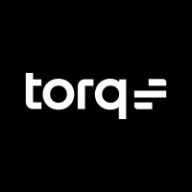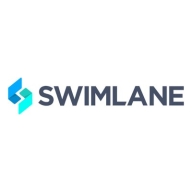


Swimlane and AWS Security Hub are competing in security orchestration and automation. Swimlane has advantages in customer support and pricing, while AWS Security Hub leads with its extensive features.
Features: Swimlane offers strong customization, extensive integrations, and adaptability for complex environments. AWS Security Hub integrates comprehensively with the AWS ecosystem, provides robust threat detection, and supports compliance checks effectively.
Ease of Deployment and Customer Service: Swimlane ensures straightforward deployment with robust customer service to integrate into existing systems. AWS Security Hub, as part of AWS, requires cloud expertise but offers excellent documentation and support within its framework.
Pricing and ROI: Swimlane has a higher initial setup cost, but its enhanced efficiency and customization justify the investment. AWS Security Hub provides a scalable pricing model, aligning costs with usage, offering significant value through threat intelligence and AWS connectivity.
| Product | Market Share (%) |
|---|---|
| AWS Security Hub | 6.8% |
| Torq | 4.9% |
| Swimlane | 3.0% |
| Other | 85.3% |


| Company Size | Count |
|---|---|
| Small Business | 10 |
| Midsize Enterprise | 5 |
| Large Enterprise | 12 |
| Company Size | Count |
|---|---|
| Small Business | 2 |
| Midsize Enterprise | 1 |
| Large Enterprise | 6 |
Torq is the enterprise AI SOC solution that effectively combines adaptive insights and automation to handle critical threats efficiently. It manages threat lifecycles, swiftly moving from triage to response, ensuring effective risk management.
Torq is designed to streamline security operations by aggregating telemetry across your security stack. It investigates significant risks and manages threats from triage to containment and remediation. This AI-driven tool enhances the capabilities of your SecOps team, allowing them to achieve more impactful results without introducing complicated processes.
What are the key features of Torq?In industries like finance and healthcare, Torq shows effectiveness by adapting to specific risk scenarios often encountered in these fields. Its integration with existing infrastructures makes it a valuable asset for maintaining stringent security standards, essential for protecting critical data and operations in diverse high-stakes environments.
AWS Security Hub is a comprehensive security service that provides a centralized view of security alerts and compliance status across an AWS environment. It collects data from various AWS services, partner solutions, and AWS Marketplace products to provide a holistic view of security posture. With Security Hub, users can quickly identify and prioritize security issues, automate compliance checks, and streamline remediation efforts.
The service offers a range of features including continuous monitoring, threat intelligence integration, and customizable dashboards. It also provides automated insights and recommendations to help users improve their security posture. Security Hub integrates with other AWS services like Amazon GuardDuty, AWS Config, and AWS Macie to provide a unified security experience. Additionally, it supports integration with third-party security tools through its API, allowing users to leverage their existing security investments.
With its user-friendly interface and powerful capabilities, AWS Security Hub is a valuable tool for organizations looking to enhance their security and compliance posture in the cloud.
Swimlane is a leader in security orchestration, automation and response (SOAR). By automating time-intensive, manual processes and operational workflows and delivering powerful, consolidated analytics, real time dashboards and reporting from across your security infrastructure, Swimlane maximizes the incident response capabilities of over-burdened and understaffed security operations.
Swimlane was founded to deliver scalable innovative and flexible security solutions to organizations struggling with alert fatigue, vendor proliferation and chronic staffing shortages. Swimlane is at the forefront of the growing market for security automation and orchestration solutions that automate and organize security processes in repeatable ways to get the most out of available resources and accelerate incident response.
We monitor all Security Orchestration Automation and Response (SOAR) reviews to prevent fraudulent reviews and keep review quality high. We do not post reviews by company employees or direct competitors. We validate each review for authenticity via cross-reference with LinkedIn, and personal follow-up with the reviewer when necessary.